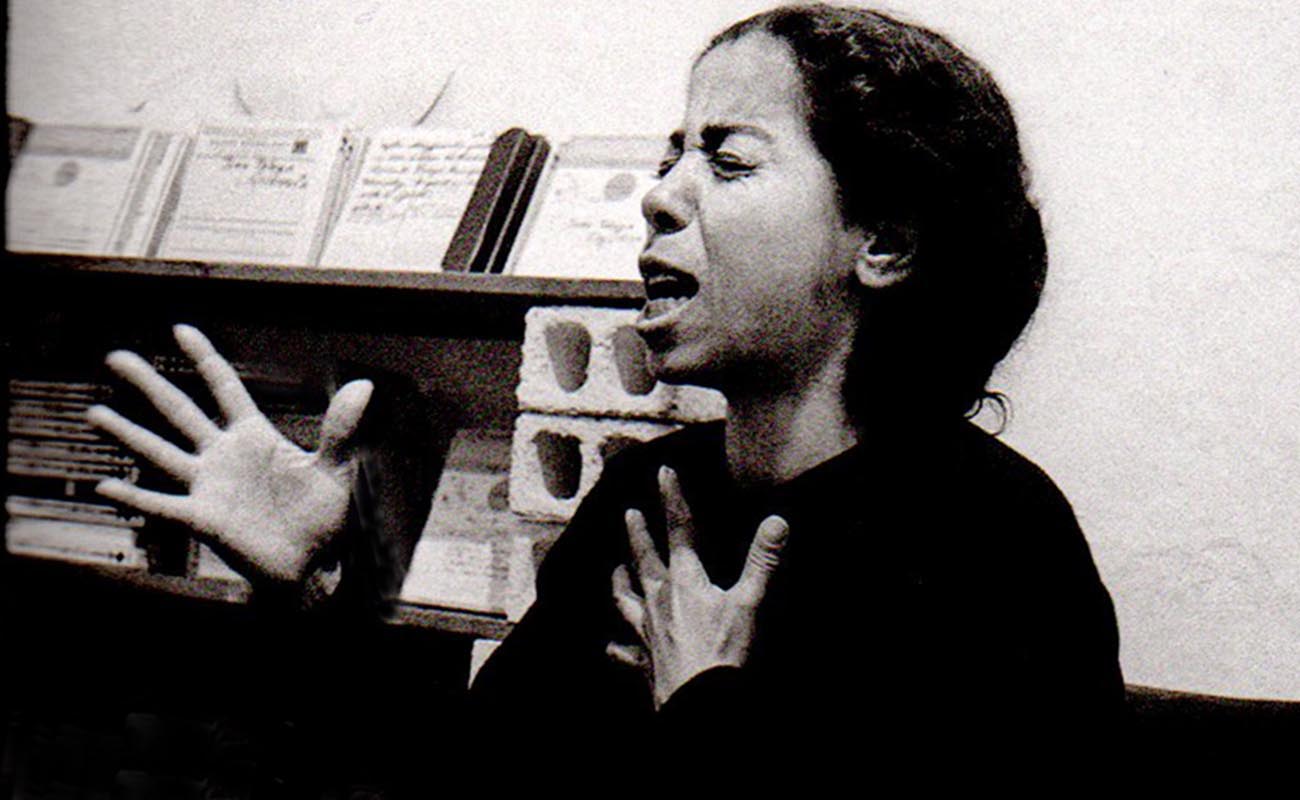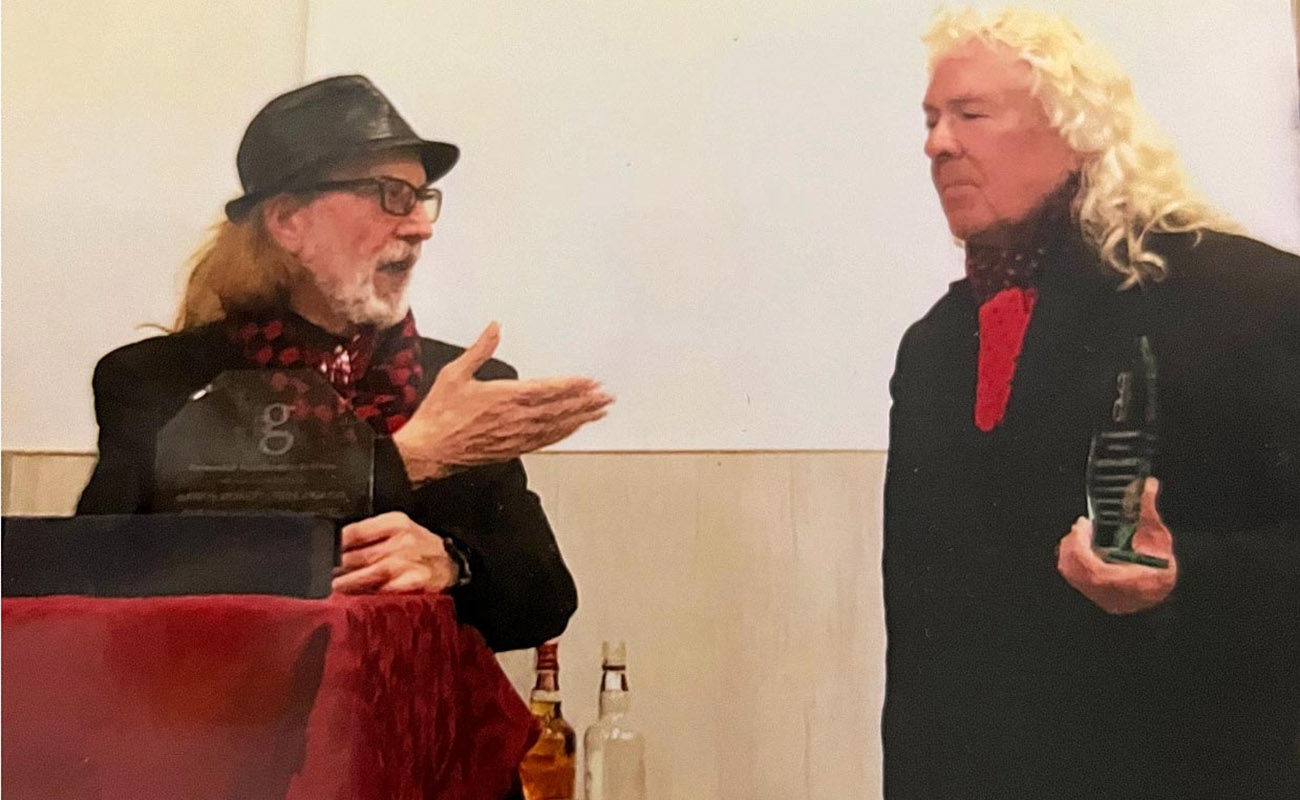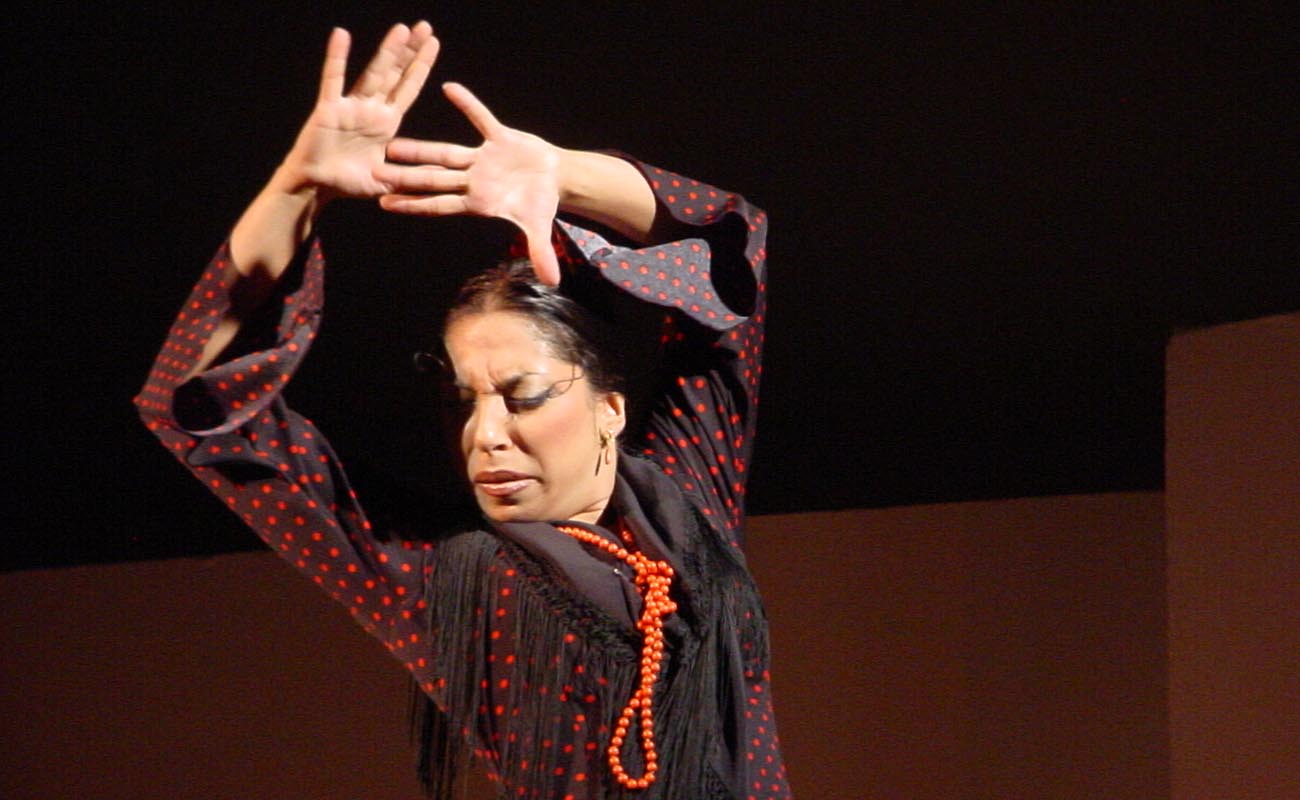“Everyone loves me for my singing… but no one loves me” – Fernanda de Utrera
Fernanda de Utrera earned a place of honor at the altar of flamenco, shattering our souls with the dark honey of her insufficient voice, her deep song and her unique artistic personality.

The words that appear here in the headline, and which I couldn’t fully understand when I first heard them, are a direct quote from one of the most admired flamenco singers in the history of this art-form. Fifty years after they were spoken, when we’re remembering the lady from Utrera on the centennial of her birth in 1923, it seems perhaps that it’s the most accurate self-description of Fernanda Jiménez Peña. Early one morning during the Utrera fair, after a long night of fiesta, both of us looking like something the cat dragged in, Fernanda spoke those words that now appear to be the key to her barely disguised sadness, and the permanent resignation that filtered through her singing, touching our flamenco fibers.
Ay Fernanda… A sociable generous lady with a wall-to-wall smile, adored by flamenco fans, yet she didn’t feel loved on a personal level. This is the message I hear in her voice and way of singing that plays over and over in my head por soleá: Me tienes tan sujeta (You have me so controlled)… Por el hablar de la gente (The people’s gossip)… Cualquier diíta menos pensao (The day you least expect it)… Mi mal no tiene cura (My sickness has no cure)… Eso que la gente habla (What everyone is saying)… Fernanda holds the permanent deed to these verses, and many others, with her painful voice, without histrionics or fake gestures. It’s the opposite end of the pole from over-the-top shouting of other singers who probably never heard Manolo Caracol’s famous words: “flamenco singing isn’t for the deaf”.
It’s possible her family and professional life kept her from having a serious relationship. Or perhaps her devotion, always reciprocated, to her inseparable sister Bernarda, left little room for a conventional romance. She wasn’t pretty, no…nor was she ugly. Her features could be described as exotic.
The flamenco singing of Utrera is tinged with a mysterious kind of bittersweet pain. Absent is the rage and intensity that inspires the output of other zones, and an ambience of darkness filters through even the “alegrías” (happiness) of Pinini, Fernanda’s famous grandfather. The cante of soleá seems rooted in Utrera, leaving much of the body of siguiriyas to singers of Cádiz and Jerez. Bulerías are geographically distributed as well, boisterous in Cádiz/Jerez, slow and expressive in Utrera, despite being essentially a festive form. When Fernanda sang soleá, her face was a knot of pain, each syllable a nearly lost battle. A spiritually rich stew, so personal that attributions of specific styles seem irrelevant, and everything is “soleá de Fernanda”.
Unlike many people believe, she was not “discovered” in the legendary film of 1952, Duende y Misterio del flamenco. Her voice is heard, but we only see her sister Bernarda. It would be another few years until records of dance shows would become popular, and both sisters would record with Manuela Vargas leading to their unmistakable voices being heard at the most important festivals and Madrid tablaos.
With just 6 or 7 styles of soleá, Fernanda de Utrera earned a place of honor at the altar of flamenco, shattering our souls with the dark honey of her insufficient voice, her deep song and her unique artistic personality, always navigating between painful sweetness and her need to be loved like any other individual.
What a great privilege to have known you, Fernanda.
Top image: Fernanda de Utrera, 1966 – Photo: Maria Silver Chris Carnes




